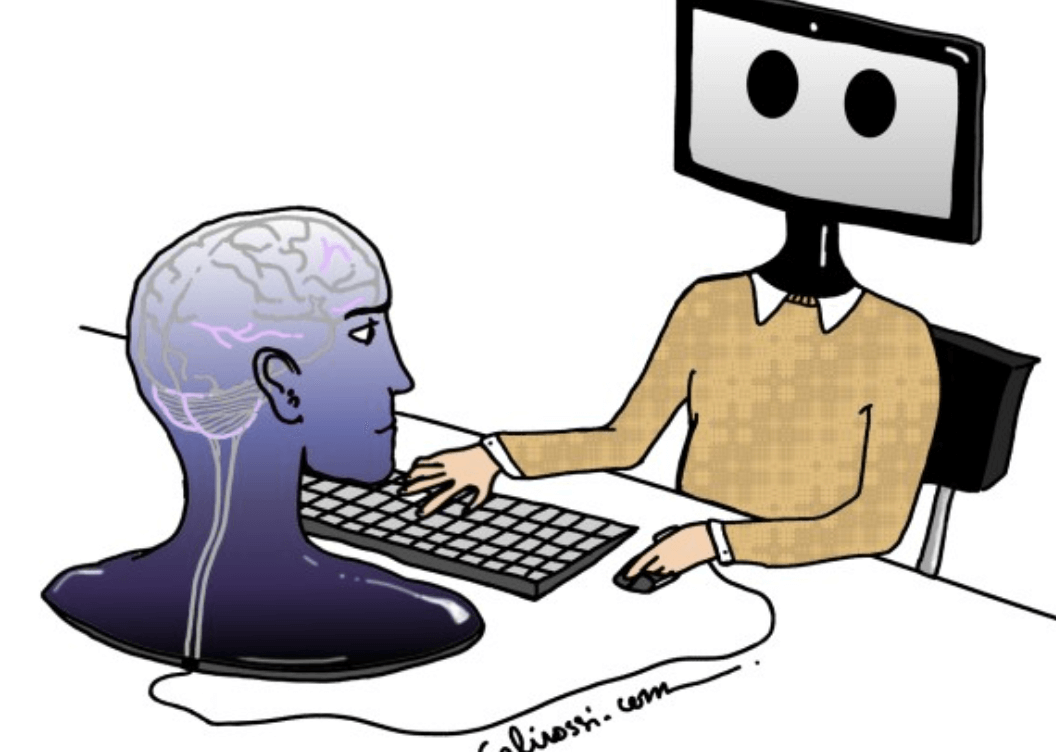Computers use binary – The binary system, is a base-2 number system. That means it only uses two numbers: 0 and 1. When you add one to one, you move the 1 one spot to the left into the twos place and put a 0 in the ones place: 10.
The human body also has code. DNA. DNA, or deoxyribonucleic acid, is the hereditary material in humans and almost all other organisms. Nearly every cell in a person’s body has the same DNA. DNA is the source code for humans, and life. How to build components and operate processes, just like a computer.
Unlike binary systems, and bits (binary digits). DNA can be one of four values, and is therefore a what is similar in quantum computers as a qubit. DNA is a long polymer made from repeating units called nucleotides, each of which is usually symbolized by a single letter: either A, T, C, or G. Each nucleotide is composed of one of four nitrogen-containing nucleobases (cytosine [C], guanine [G], adenine [A] or thymine [T]), a sugar called deoxyribose, and a phosphate group.
A qubit is a quantum bit, the counterpart in quantum computing to the binary digit or bit of classical computing. Just as a bit is the basic unit of information in a classical computer, a qubit is the basic unit of information in a quantum computer.
Advantages of qubits vs bits. Unlike bits, qubits can store more information than just a 1 or 0. They do this because they exploit unique features and can thus exist in 1, 0 or a superposition of these values allowing a qubit to be in both states at the same time! They are basically like a 4D bit.
What is a quantum computer?
A quantum computer uses qubits to run multidimensional quantum algorithms. Their processing power increases exponentially as qubits are added. A classical processor uses bits to operate various programs. Their power increases linearly as more bits are added. Classical computers have much less computing power.
So, is the human body a quantum computer? – yes every cell is is a tiny quantum computer. But how biology and computers are different is that in computers, there is no central processor like in computers. Instead, every cell of the human body is a tiny computer by itself. We are made of billions of cellular quantum computers that perform processes by themselves. Each cell contains all our source code. The human brain is like a super-computer, made up of billions of tiny quantum-computers.
There is so much we don’t know and understand about how the body and biology works. We still can’t totally read and understand DNA, like we can with binary and we don’t know how the brain works.
This is a rapidly developing field. It seems like these two fields – biology and computing power are developing rapidly by themselves. We are rapidly developing computing power, and at the same time beginning to understand how biology works. It will be amazing to see what those two fields can learn from each other, and how we can combine the two fields.
With computing power and technology we have developed, we are able to do many things that we have not seen in biology – such as connecting data together on such a large scale, the internet and how it can be accessed by humans , and data storage.
Biology is able to do things that computers can not do. For one, the human brain is far more energy efficient. Computers have some parts for processing and others for memory; the brain does not do this separation, which makes them enormously efficient. The same calculations and processes that a computer might take a few million steps can be accomplished through a few hundred neuron transmissions, which require much less energy and are much more efficient; the amount of energy required to be calculated by the world’s fastest supercomputer would be enough to power a building; the human brain would achieve the same processing speed from the same energy needed to charge a dimming light bulb.
Is genetic biology and computer science two fields of an enormous subject, that we are only beginning to learn about? Lots more questions.
Resources;
- https://www.avanade.com/en/blogs/techs-and-specs/quantum-computing/bit-qubit
- https://bernardmarr.com/what-is-biological-computing-and-how-it-will-change-our-world/
